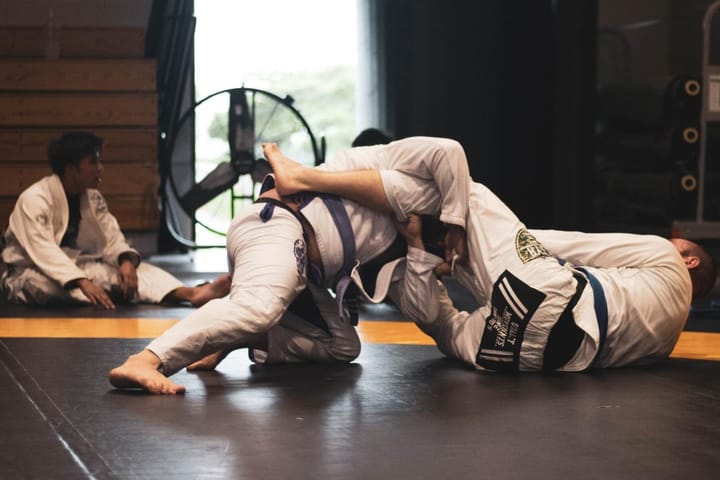Sparring Partners
In the age of the “knowledge worker” so much of our ability to succeed is dependent on the active exchange of ideas. This is similar to having a “sparring partner” in martial arts or boxing — and being good in that role takes discipline and practice even if you are not landing any kicks or punches.

Photo by Samuel Castro
In the age of the “knowledge worker,” so much of our ability to succeed is dependent on the active exchange of ideas. Commonly, this exchange takes the form of debate and discourse among peers — and these series of volleys, whether pugilistic or intellectual, must be carefully calibrated in terms of intensity, reciprocation, and escalation. In a highly collaborative environment full of subject matter experts, it becomes increasingly important to maintain this exchange of ideas in a constructive and respectful environment.
This is similar to having a “sparring partner” in martial arts or boxing — and being good in that role takes discipline and practice, even if you are not landing any kicks or punches. As you investigate your sparring partner options in the workplace, focusing on intellect rather than physicality, it is important to keep these three things in mind:
- Find people better than you.
- You are not trying to win.
- Be retrospective.
Let’s take a deeper dive into each of them.
Find people better than you
A well-matched sparring partner will meet you where you are in your own practice while also requiring you to level up your game. Those individuals who have years of experience and different backgrounds than you can bring new strategies and techniques that you will be forced to think through and engage. So, whether you are looking for a sparring partner to test and validate your own ideas, or you are serving as a sounding board for someone else, this will expand your own repertoire of techniques.
One of the reasons mixed martial arts has been such a success worldwide is because it brings together fighters from a wide variety of fighting styles and backgrounds. This intersection of diverse skill sets leads to exciting and unpredictable matches. Just like a muay thai pro with a killer kick pitted against a judo expert with an incredible ground game — finding people who excel in different disciplines in the workplace can make for fantastic sparring partners.
You are not trying to win
While sparring and competing seem fundamentally similar, the primary difference is that sparring isn’t about winning. Participants are looking to make their ideas — and ultimately themselves — better. These training sessions leverage the extensive experience of the participants to make everyone better.
This mindset of trying to “win” in sparring is often what leads to a lack of evolution in your game, because you are afraid to try out new things in case they do not work. It also means you are more emotionally invested — if you get hit, you are not losing, you are learning, so resist that urge to throw your overhand right back as hard as you can.
How To Be A Good Muay Thai Sparring Partner
Sparring sessions require checking your ego at the door. In this exchange, this is where hypothetical scenarios are interrogated in a safe and non-threatening environment. An adept sparring partner will encourage lines of exploration such as, “if this happens, what would (or should) the response be?”
Be retrospective
A good sparring session is educational. A lot can be learned in the moment through a flurry of ideas and being forced to think on your feet. It is also a great opportunity to try out new techniques and strategies with a formidable and friendly opponent. However, the learning opportunities don’t end there. It is also important to reflect on the session after it has ended,recognizing what went well, what you learned, and what didn’t land like you expected. Your reflections on the “bout” may yield different insights than you experienced in the moment.
Consider memorializing your thoughts immediately after the session by writing down your initial impressions, and revisit those thoughts hours or days afterward. Comparing notes with your sparring partner may also yield insights. A good sparring session will do more than highlight strengths and weaknesses; it can also shed light on biases and reflexes and give you an opportunity to instill new habits.
The takeaway
The concept of an intellectual sparring partner is not new. But in the competitive world of business, we too often neglect investigating the value to be had from volleying thoughts and ideas with a trusted colleague. The act of finding, or being, a good sparring partner is an integral part of training, and its benefits resonate long after the actual sessions have ended.



